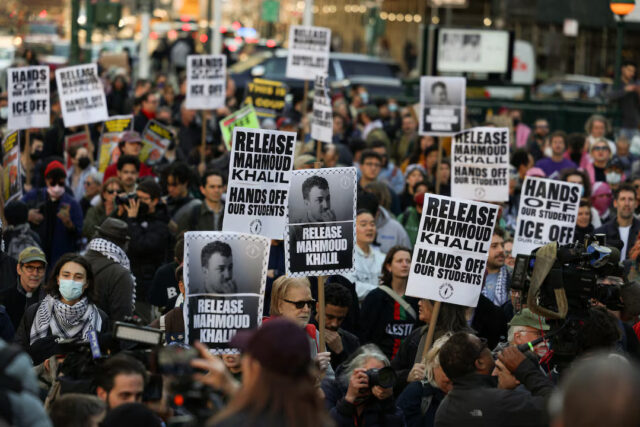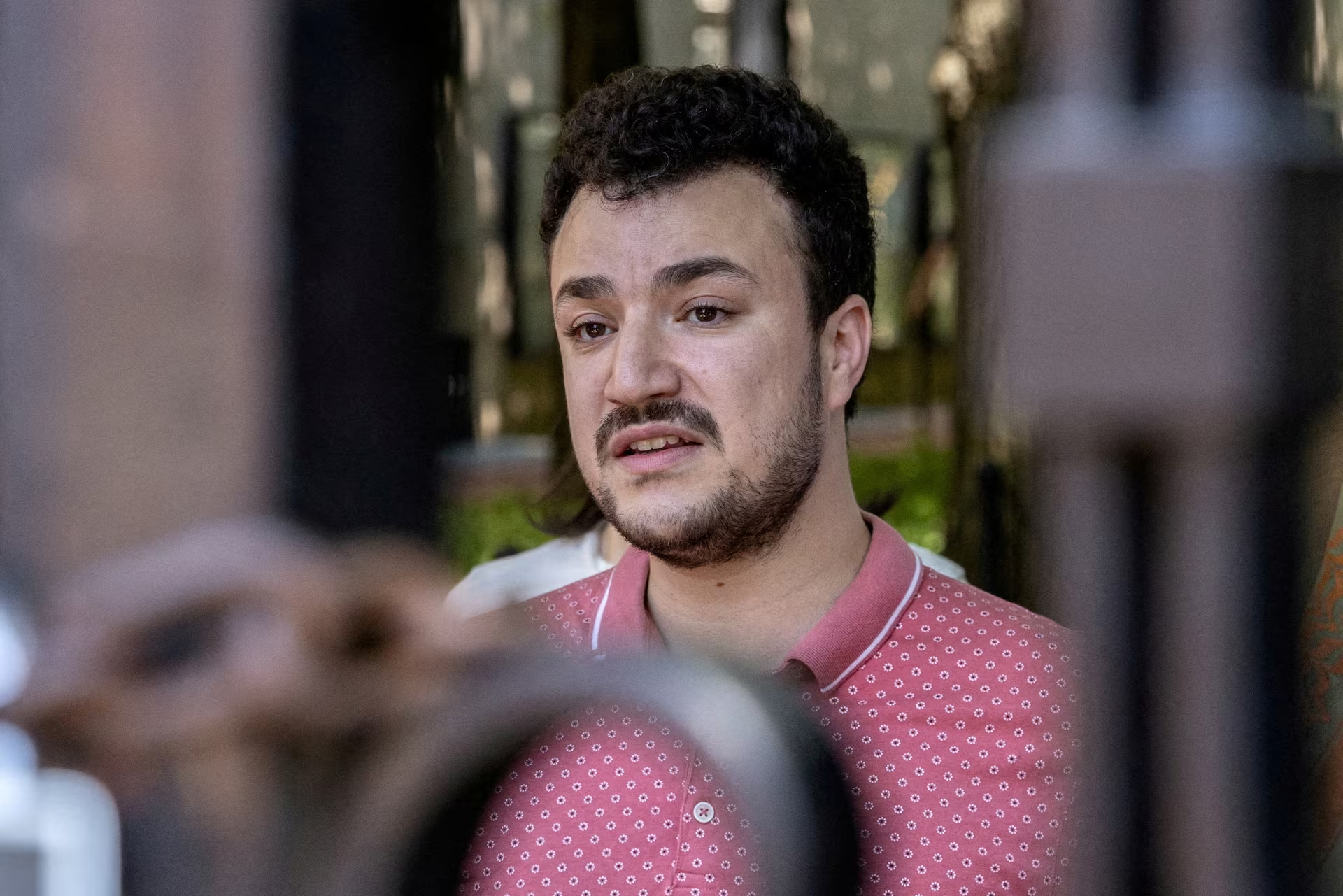
A high-profile deportation case involving Columbia University graduate student Mahmoud Khalil has reached a critical juncture, as an immigration judge gave the U.S. government until Wednesday evening to submit evidence justifying his deportation. The final ruling on Khalil’s fate is set for Friday, nearly a month after his controversial arrest during a pro-Palestinian protest in New York and his subsequent transfer to a rural Louisiana jail more than 1,200 miles away.
Judge Jamee Comans, Assistant Chief Immigration Judge at the LaSalle Immigration Court, made it clear that the case would be dismissed unless the Department of Homeland Security (DHS) presents substantial evidence to support its claims. “If he’s not removable, I’m going to be terminating this case on Friday,” she declared during the tense Tuesday hearing.
Khalil, 30, sat quietly in the courtroom, prayer beads in hand, while his attorney, Marc Van Der Hout, participated via video from California. Van Der Hout told the court he had not received a single document detailing the government’s case. Judge Comans emphasized her commitment to due process, stating, “There’s nothing more important to this court than Mr. Khalil’s due process rights,” and expressed unwillingness to prolong his detention over procedural delays.
The DHS lawyers responded that they would submit the requested documentation before the judge’s 5 p.m. deadline on Wednesday.
Constitutional Questions and Political Undercurrents
Khalil’s legal team argues that the case is less about immigration violations and more about First Amendment rights. “What this case is really about is whether lawful permanent residents — and other immigrants to this country — can speak out about what is happening in Gaza… without fear of deportation,” said Van Der Hout in a statement.
He warned that targeting immigrants for protected speech could lead to a broader erosion of civil liberties, asking, “Are U.S. citizens going to be next?”
The Trump administration has cited a 1952 law that allows the deportation of immigrants deemed harmful to U.S. foreign policy. It claims Khalil’s permanent resident status was revoked on those grounds, as well as alleged omissions in his green card application — charges Khalil denies.
His arrest in March has drawn national attention amid a wider crackdown on campus protests against U.S. military support for Israel. Secretary of State Marco Rubio has since claimed that the administration has revoked the visas of hundreds of foreign students for participation in such protests. Critics, including Jewish and pro-Palestinian student groups, argue that political speech is being mischaracterized as antisemitism to silence dissent.
The Human Cost
Khalil, who was born in a Syrian refugee camp, has described himself as a political prisoner. His lawyers say he’s being targeted for his views and highlight the personal toll of his detention.
His wife, Noor Abdalla, a U.S. citizen, is due to give birth to their first child this month and has been unable to visit him due to her pregnancy. She was granted special access to Tuesday’s hearing at Khalil’s request, although the virtual courtroom was overwhelmed with nearly 600 participants trying to view the proceedings, a testament to the intense public interest.
The outcome of Friday’s ruling could mark a turning point. If Judge Comans dismisses the case “with prejudice,” Khalil will be free from further deportation attempts on these grounds. However, a dismissal “without prejudice” could open the door for the government to try again.
If the judge sides with the government, Khalil will still have the opportunity to seek relief from removal — such as asylum — and can appeal the decision.
What’s Next?
Until then, Khalil remains in detention. A separate habeas corpus petition challenging the legality of his arrest is also pending in U.S. District Court, which has ordered that he not be removed from the U.S. until a decision is made.

Friday’s ruling could not only decide Khalil’s fate but may also set a precedent for how far the U.S. government can go in policing speech under the guise of immigration enforcement.



